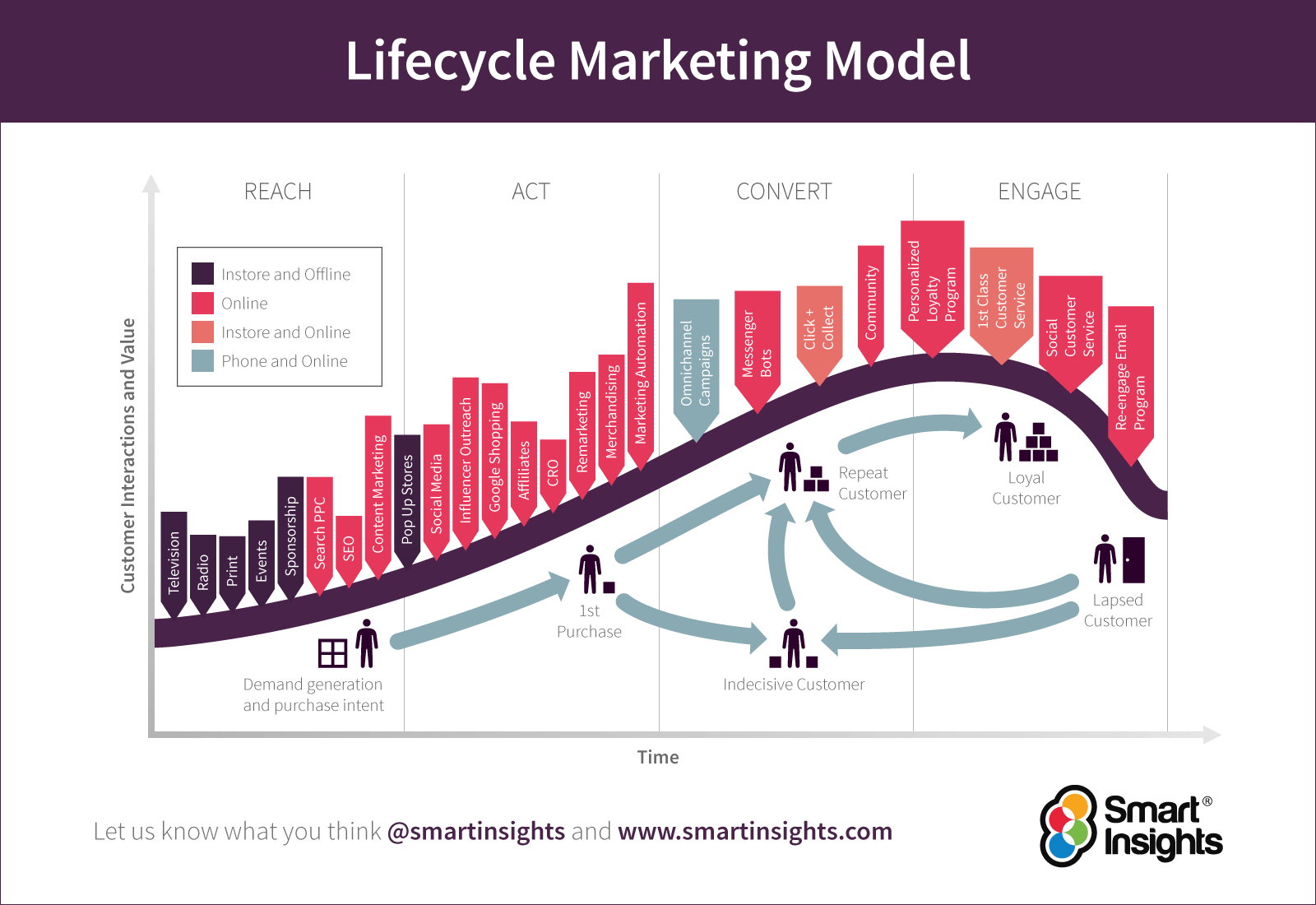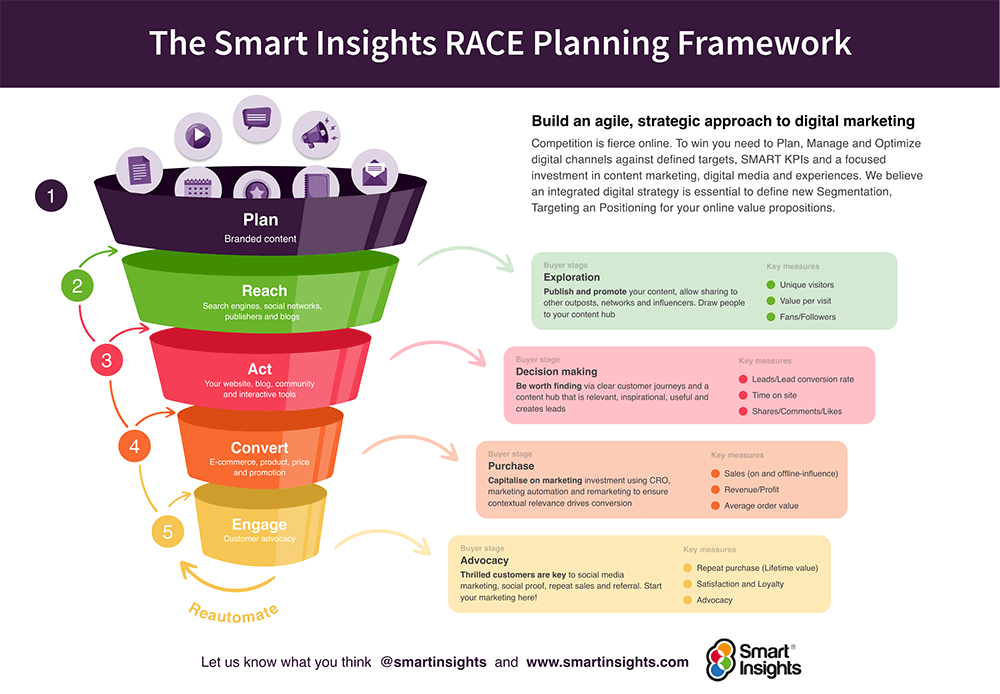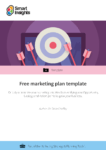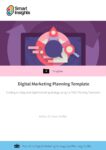Mastering the art of the product launch: 3 product launch examples plus our recommended process and templates for a successful product launch
You are working during one of the most entrepreneurial eras in history. Thanks to digital media, launching a product to a global audience has never been so manageable.
Equally, competition has never been as fierce. To successfully launch your product online, you need a winning product launch marketing plan. For a successful launch, product marketers need to work with marketing communications experts so that the benefits of the new product are carefully positioned and then, the best online reach channels are selected to reach your audience. We'll show how you can use the RACE framework to review the different media options and build a funnel to maximize interest and sales in your new product.
By using this type of strategic planning and following best practices for using digital channels, product marketers can avoid common product launch pitfalls such as targeting the wrong audience, using the wrong type of content and not optimizing the right customer journeys.
Within new product development (NPD), marketing can make or break the launch. That's why we recommend utilizing our tried and tested marketing processes and templates, to acquire and retain high-value customers from the off.
The RACE Framework
We created the RACE Framework as a structure for marketers and managers to plan, manage and optimize their customer journeys across all the key customer touchpoints - including digital media and experiences.
This visual shows all the potential interactions that can be used during a product launch campaign. You can use it as a visual checklist of what’s required. Keep reading to the end to see examples of it in practice.

Why do you need a product launch marketing plan?
Creating a product launch marketing plan helps you take a structured approach to exploring potential opportunities for your launch, defining your aims, and preparing your launch timeline. This applies to all product marketing activity relating to your launch:
- Pre-launch
- Launch
- Post-launch
Planning your product launch empowers you to prioritize resources in a logical and effective order. With a product launch campaign, as with so many issues related to business, whilst you can plan for most eventualities, you should also plan for the unexpected. That's why we recommend using an actionable framework to structure your marketing, and make adjustments.
In this blog, we'll cover the fundamentals of planning for your launch, plus examples of product marketing in action, and advice to help you get your launch over the line.
If you're looking for new marketing solutions tools to streamline your marketing activities and boost your performance, did you know Smart Insights offers both free and paid membership options? Find out more about marketing tools, templates, and memberships, integrated across RACE, and chose the right plan for your business.

How to structure your marketing plans with RACE
You may know the Smart Insights RACE Planning framework, integrated across 5 essential outcomes of any marketing or digital marketing plan:
- Plan
- Reach
- InterAct
- Convert
- Engage
The RACE Framework gives marketers and managers quick access to practical, actionable data about their customers' experiences of your product. That's why we recommend using RACE to plan your product launch campaign.

How do you create a marketing plan for a product launch?
Product marketing is a unique area of marketing. Product marketers work with a critical focus on their products and how customers perceive and utilize them, as shown in this definition by the Product Marketing Alliance.
"Product marketing is the driving force behind getting products to market - and keeping them there. Product marketers are the overarching voices of the customer, masterminds of messaging, enablers of sales, and accelerators of adoption."
That's why, when planning your product launch, it's essential that you chose a customer-focused framework.
Our internationally acclaimed RACE Framework breaks down your product launch campaign plan through a simple customer-focused experience funnel. We recommend these 5 steps to guide you from initial planning to customer sales activation and long-term brand building and advocacy.
A simple 5-step product launch plan based on RACE.
- PLAN. Plan your launch - your product launch marketing plan
Research, benchmark, and set objectives against your planned, focused investment in branded content to promote your product. We recommend creating forecasts of how many you will reach and convert using our conversion funnel spreadsheets which estimate the number of people you will be able to reach and convert for each marketing channel you invest in. This will also help set expectations of what is achievable given the launch budgets you have available.
- REACH. Create awareness in your market - your product launch campaign plan
Here you define how you will use your selected paid, owned, and earned media campaigns to attract your target audiences to discover your product. See our article How to structure an effective campaign plan to win more customers for details of each stage of creating the campaign plan. Key paid media techniques to consider include Google Ads Paid social (for example using LinkedIn or Meta platforms). Given the cost of these media and particularly if your launch category has low search intent, Digital PR including influencer marketing and co-marketing are recommended to be your main focus for earned media to reach your audience most cost-effectively.
- ACT. Influence user interaction - your content marketing plan
Here you are looking to engage your audience who has shown interest in your product. Content marketing is particularly important here, with using rich media and video key techniques to invest in to get cut through. Developing clear landing pages explaining features and benefits are hygiene factors today. You need to provide WOW. Use content ideation to select the right types of content to engage your audience to entertain, inspire, educate, and convince them of your product. Use our content marketing matrix to brainstorm the best content formats to use for your product launch.
- CONVERT. Convert interest to customers. This is the vital part of achieving your commercial targets by winning more online and offline sales. To achieve this you need a contact strategy which starts with how you will acquire leads through using the right lead magnets to gain engagement and then nurture this interest through email marketing and ad retargeting.
- ENGAGE. Encourage post-purchase engagement and recommendations. This is often forgotten, but turning early adopter customers into loyal advocates is particularly important with product launches to encourage others to buy. So make sure you build this into your customer onboarding plan.
For each of these stages, we recommend specific actions to take and resources and tools in our guide. You can download your copy of our RACE marketing plan below, which is applicable to both B2B and B2C markets as you'll see below. But first, read our top tips on how to create a successful product launch marketing plan.
Free marketing plan template download
Use our simple three-page Microsoft Word template if you work for a small business who needs to quickly create a simple, practical marketing plan quickly. It's structured in three sections of steps using the acclaimed RACE Growth System for improving marketing results
Access the Free marketing plan template
New product launch marketing plan examples
It can be difficult to start from scratch. Included below are some consumer and business product launch examples:
Example – B2C product launch objective: Gaming
To become the bestselling maze-building gaming app.
"Every maze is based on highly accurate maps of some of the world’s most popular actual mazes."
Example – B2C product launch plan
- Conduct market research, analyze competitors, and understand gaming app industry trends.
- Develop the maze-building gaming app with accurate maps and perform extensive testing for functionality and performance.
- Create a unique brand identity, define key attributes, messaging, and positioning that highlight the app's features and realistic maze experiences.
- Design a comprehensive marketing strategy using social media, influencers, app store optimization, and targeted advertising.
- Optimize the app's presence on app stores through keywords, descriptions, screenshots, and icons using ASO techniques.
- Implement user acquisition campaigns, offer incentives, rewards, and updates to engage and retain users.
- Track KPIs, analyze data for improvement, gather user feedback, and iterate the app to enhance user satisfaction.
Example – B2C product launch objective: Security
To become the go-to smart home security system for residential households.
"Our smart home security system provides advanced features such as facial recognition, real-time alerts, and seamless integration with other smart devices."
Example – B2C product launch plan:
- Conduct market research to understand the target audience and competition.
- Develop a user-friendly and secure smart home security system with advanced features.
- Create a compelling brand identity and messaging that highlights the system's benefits.
- Design a comprehensive marketing strategy using online and offline channels to generate awareness and interest.
- Establish partnerships with retailers, e-commerce platforms, and influencers to expand distribution.
- Provide customer education, support, and user-friendly documentation.
- Continuously gather customer feedback and update the system to meet evolving needs, leveraging positive experiences to build trust and credibility.
Example – B2B product launch objective: SaaS
To become the most trusted online small business accounts software platform you can buy.
"Our software package has been developed in partnership with each of USA’s top three small business accountancy practices."
Example – B2B product launch plan
- Conduct in-depth market research to understand the needs and preferences of small businesses seeking online accounting software.
- Collaborate with small business accountancy practices to develop a comprehensive and reliable online small business accounts software package.
- Create a strong brand identity and positioning that emphasizes trustworthiness, reliability, and expertise in small business accounting.
- Design a targeted marketing and communication strategy to reach small businesses, highlighting the software's benefits, ease of use, and industry partnerships.
- Establish sales channels, partnerships, and online platforms to ensure widespread availability and easy access to the software for small businesses.
- Provide seamless onboarding processes, comprehensive training materials, and responsive customer support to assist small businesses in adopting and utilizing the software effectively.
- Regularly collect customer feedback to identify areas for improvement, prioritize updates, and enhance the software based on the evolving needs of small business owners.
As you can see, a new product launch is no mean feat. It's likely you'll need a variety of marketing solutions to help bring your plan to fruition. That's where we come in, as Smart Insights has marketing solutions structured across 20 marketing toolkits, including lifecycle marketing, digital experience, and sector technology.

Expert advice for optimizing your product launch marketing plan
We hope you have found these examples useful. Keep reading for expert advice on optimizing your own product launch marketing plan.
"Plan for the worst"
With so many variables, it would be foolish to suggest you can always be fully prepared for anything. However, by reviewing the risks and defining steps to mitigate them you will be able to remain in control of each stage of your launch, even if the unexpected happens, you’ll be ready to respond to it coolly, rather than react on the spur-of-the-moment.
Smart Insights Business Members can track internal and external factors at play within their NPD eco-system, and adapt accordingly with solutions such as our SWOT/TOWS template, PESTLE analysis template, and Customer journey mapping template.
"Define your product vision and how to reach it"
Depending on your intended market, you will need to develop a clear all-encompassing vision. Each aspect of your product launch vision is supported by a substantiating statement.
Geoffry Moore offers a simple template for drafting a vision statement, based on a fill-in-the-blank approach.
"For [our target customer], who [customer’s need], the [product] is a [product category or description] that [unique benefits and selling points].
Unlike [competitors or current methods], our product [main differentiators]."
Our Digital Experience Learning Path module, Define Digital Value Proposition, helps product and brand marketers craft a powerful DVP, using tools such as the 6Cs of customer motivation and benchmarking.
"Identify your early adopters"
You are intimately familiar with every aspect of your new product. However, the same cannot be said for your prospective markets and audience.
Initially the most important of these markets are ‘early adopters’, particularly where you are launching into a relatively new product category.
During the first phase of your planning, beyond simply considering what your product is, think about how and where it fits on the ‘radar’ of your early adopter marketplace. This is crucial.
Not only does it help ensure the features and benefits of your product are understood, but importantly, it sends out a signal that helps early adopters distinguish your offering against competitors who may produce a similar product.
You can download our product launch playbook to find out more about how to build a marketing plan for each stage of your product launch, across B2B and B2C industries, with examples.
"Create a product launch campaign plan"
Draw up a timeline covering the build-up, launch, and post-launch, mapping each stage against benefit messages aimed at specific markets, along with benchmarks against which you can explain any value propositions against competitors.
When developing your campaign plan, consider how you can work with potential influencers early on. Online, this has far-reaching implications that extend to how and where you promote your product. For example, which influencer blogs should you have in your sights? How about podcasts and trusted journalist reviews?
Smart Insights Business Members can use our marketing campaign plan template to structure their product launch timeline across campaign goals, target audience and targeting, key messages, media plan and budget, campaign assets, execution, and tracking.
"Use tracking KPIs to review audience engagement"
When launching a new product, as with any campaign, you will want to define success criteria, but it’s particularly important for a new product launch campaign since uncertainty means you will need to adjust your approach.
Key performance indicators include:
- Video downloads.
- Infographic downloads.
- Brochure downloads.
- Click Through Rates
- Volume-based KPIs
- Total revenue from customers acquired through online marketing.
- Cost Per Lead.
- Customer value.
Break down your KPIs by channel to measure and compare your results. Metrics here could include:
- Social media traffic and conversion rates.
- Email traffic - including benchmarking segmented lists.
- Organic traffic, bounce rates, pages per session.
- Landing page conversion rates, desktop and mobile.
Finally, don't forget that building the option to update or upgrade a product over time can enhance your income revenue stream. Engagement is a key feature of successful RACE product launch marketing plans, don't undo all your hard work by failing to keep customers engaged post-purchase.
'Engage' is the final stage of our RACE funnel and one that can be overlooked by marketers who don't have a strategic approach to their marketing. But there are so many advantages both interaction and engagement that can boost conversion. Find out more about how to boost your customer engagement and all the other parts of our purchase funnel when you download your free guide today.
Free digital marketing plan template
Our popular marketing planning template is structured across the Smart Insights RACE Framework. Join Smart Insights as a Free Member to download our digital marketing plan template today
Access the Digital marketing plan template










